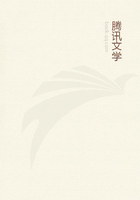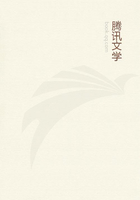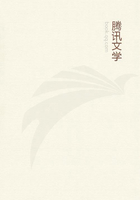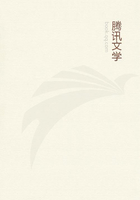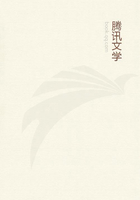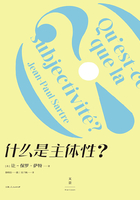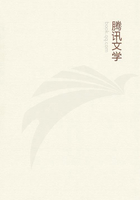Nevertheless, I would have less hesitation in saying that He is the holiness of both, not as if He were a divine attribute merely, but Himself also the divine substance, and the third person in the Trinity.I am the rather emboldened to make this statement, because, though the Father is a spirit, and the Son a spirit, and the Father holy, and the Son holy, yet the third person is distinctively called the Holy Spirit, as if He were the substantial holiness consubstantial with the other two.But if the divine goodness is nothing else than the divine holiness, then certainly it is a reasonable studiousness, and not presumptuous intrusion, to inquire whether the same Trinity be not hinted at in an enigmatical mode of speech, by which our inquiry is stimulated, when it is written who made each creature, and by what means, and why.For it is the Father of the Word who said, Let there be.And that which was made when He spoke was certainly made by means of the Word.And by the words, "God saw that it was good," it is sufficiently intimated that God made what was made not from any necessity, nor for the sake of supplying any want, but solely from His own goodness, i.e., because it was good.And this is stated after the creation had taken place, that there might be no doubt that the thing made satisfied the goodness on account of which it was made.And if we are right in understanding; that this goodness is the Holy Spirit, then the whole Trinity is revealed to us in the creation.In this, too, is the origin, the enlightenment, the blessedness of the holy city which is above among the holy angels.For if we inquire whence it is, God created it; or whence its wisdom, God illumined it; or whence its blessedness, God is its bliss.It has its form by subsisting in Him; its enlightenment by contemplating Him; its joy by abiding in Him.It is; it sees; it loves.In God's eternity is its life; in God's truth its light; in God's goodness its joy.
CHAP.25.--OF THE DIVISION OF PHILOSOPHY
INTO THREE PARTS.
As far as one can judge, it is for the same reason that philosophers have aimed at a threefold division of science, or rather, were enabled to see that there was a threefold division (for they did not invent, but only discovered it), of which one part is called physical, another logical, the third ethical.The Latin equivalents of these names are now naturalized in the writings of many authors, so that these divisions are called natural, rational, and moral, on which I have touched slightly in the eighth book.
Not that I would conclude that these philosophers, in this threefold division, had any thought of a trinity in God, although Plato is said to have been the first to discover and promulgate this distribution, and he saw that God alone could be the author of nature, the bestower of intelligence, and the kindlet of love by which life becomes good and blessed.But certain it is that, though philosophers disagree both regarding the nature of things, and the mode of investigating truth, and of the good to which all our actions ought to tend, yet in these three great general questions all their intellectual energy is spent.And though there be a confusing diversity of opinion, every man striving to establish his own opinion in regard to each of these questions, yet no one of them all doubts that nature has some cause, science some method, life some end and aim.Then, again, there are three things which every artificer must possess if he is to effect anything,--nature, education, practice.Nature is to be judged by capacity, education by knowledge, practice by its fruit.I am aware that, properly speaking, fruit is what one enjoys, use [practice] what one uses.And this seems to be the difference between them, that we are said to enjoy that which in itself, and irrespective of other ends, delights us; to use that which we seek for the sake of some end beyond.For which reason the things of time are to be used rather than enjoyed, that we may deserve to enjoy things eternal;and not as those perverse creatures who would fain enjoy money and use God,--not spending money for God's sake, but worshipping God for money's sake.However, in common parlance, we both use fruits and enjoy uses.For we correctly speak of the "fruits of the field," which certainly we all use in the present life.And it was in accordance with this usage that I said that there were three things to be observed in a man, nature, education, practice.From these the philosophers have elaborated, as I said, the threefold division of that science by which a blessed life is attained: the natural having respect to nature, the rational to education, the moral to practice.If, then, we were ourselves the authors of our nature, we should have generated knowledge in ourselves, and should not require to reach it by education, i.e., by learning it from others.Our love, too, proceeding from ourselves and returning to us, would suffice to make our life blessed, and would stand in need of no extraneous enjoyment.
But now, since our nature has God as its requisite author, it is certain that we must have Him for our teacher that we may be wise; Him, too, to dispense to us spiritual sweetness that we may be blessed CHAP.26.--OF THE IMAGE OF THE SUPREME TRINITY, WHICH WE FIND IN SOLVESORT IN HUMAN
NATURE EVEN IN ITS PRESENT STATE.

